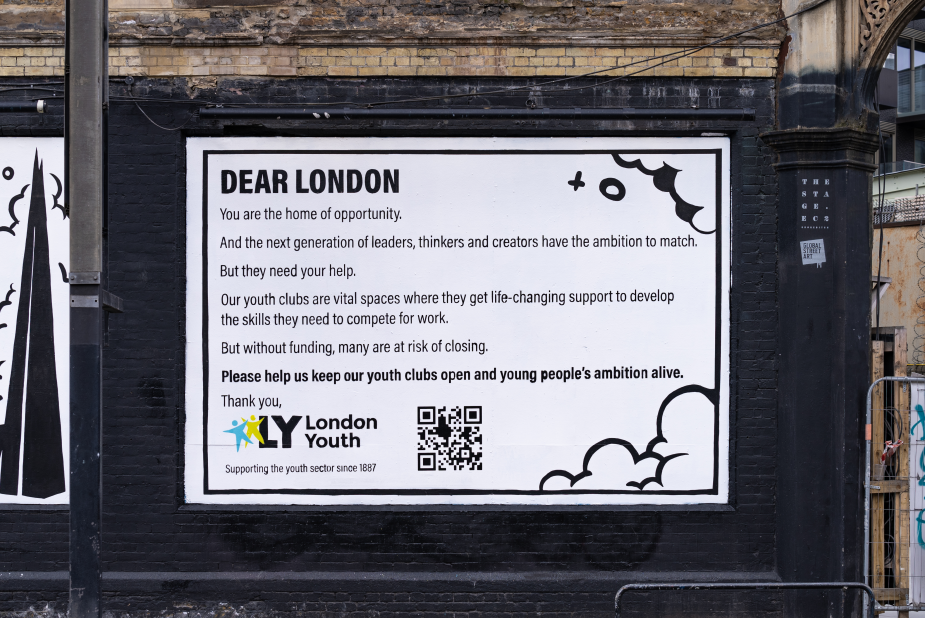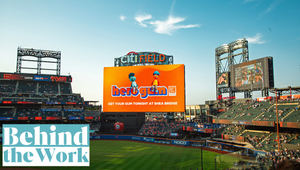
Why Hacking the Job Market Was the Top Creative Solution at 2023’s DMA Awards

Back in October I had the pleasure of spending another day in a DMA Awards jury room debating the best creative solutions that had been entered this year. A convivial group, we ended the day confident that we’d chosen the best work in that category, but the final voting process was anonymous so we left that room not knowing which campaigns would win Gold, Silver and Bronze. So finding out what we’d decided to award was a thrill.
The overall winners are here, if you haven’t seen them already, with The Royal Mail’s ‘Lighter Delivery’ innovation winning the Grand Prix – an impressive demonstration of the kind of tangible impact DMA Award winners so often make on the world.
The Creative Solutions category Gold went to ‘Ambitious Applications’ for London Youth – another project that’s made a clear impact on people’s lives. The campaign by RAPP was a creative way of ‘hacking’ the processes of recruitment that none of us in the room had considered before. And it drove partnerships between the charity and big business that will no doubt change the UK workforce for the better.
Silver also went to RAPP for its ‘Remove Fear from the Smear’ campaign for sex toy and lingerie brand Ann Summers, which cleverly presented a speculum as one of its toys, destigmatising cervical smear tests and amplifying the need for women to attend cervical screening for their ongoing health.
The Bronze award in the category was granted to Ogilvy for its heart-wrenching Dove ‘Toxic Influence’ campaign using deepfake technology to highlight the harm done by toxic beauty standards perpetuated on certain social media.
Here’s some detail on the Gold-winning project and how it creatively solved an important problem.

Thousands of disadvantaged young people in London live alongside the world’s biggest businesses. Because of inequalities and biases, they are ignored by the capital’s brutal job market, with young people of colour twice as likely to end up unemployed as their white peers. How could a small charity get noticed by the world’s elite firms?
London Youth supports 600 youth clubs in the city: free, inclusive spaces where they can learn vital employability skills and build confidence. But between government cuts and the cost-of-living crisis, the organisation was forced to find new corporate leads to help keep the lights on.
RAPP and its partners hacked the recruitment market, turning London’s job ads into a new, free direct media channel between the youth of London, and business leaders with the power to help them.
Applications were made for each C-suite vacancy with the perfect candidate, before it was revealed that each candidate was actually a young, marginalised Londoner, and they’d never be ready for the job without the support of the business they were applying to.
The work threw a focus on candidates’ skills, passion, and ambition. The campaign made it clear they were worthy of investment, not charity donations, showing big businesses the future talent they could be missing out on if they failed to act.
Every application letter spoke directly to business leaders, meeting their criteria to avoid instant rejection by using the complex, professional language the audience expected. That meant letters were read long enough for the young people to reveal their message and drive business leaders to act.
The campaign was amplified by targeting London professionals with an ‘open application’. Places across the city's most affluent suburbs were repurposed. Shop windows, construction hoardings and street art acted as makeshift media, promoting the needs of ambitious young people, and ensuring the right people in corporate businesses got the message.
The one-to-one approach created an emotional connection between future employers and potential employees. It generated eight times more leads in four weeks than London Youth averages in 12 to 18 months, reducing the time taken to obtain warm corporate leads by 92%.
Big corporations asked London Youth how they could support the city’s diverse talent, including the BBC, Boeing, Cannon, Deutsche Bank, The FA, Liberty, and Bloom and Wild. London estate agent KFH and construction firm McGee offered to partner with London Youth to help the capital’s disadvantaged young people.
Their support included taking over 59 KFH shop windows and three of McGee’s central London construction sites, resulting in London Youth’s largest integrated campaign ever.
The initiative was picked up across radio, TV and press, resulting in over £350,000 of earned media: equivalent to reaching every professional in London 24 times.
More corporates than ever can now offer life-changing opportunities to help young Londoners reach their full potential.















